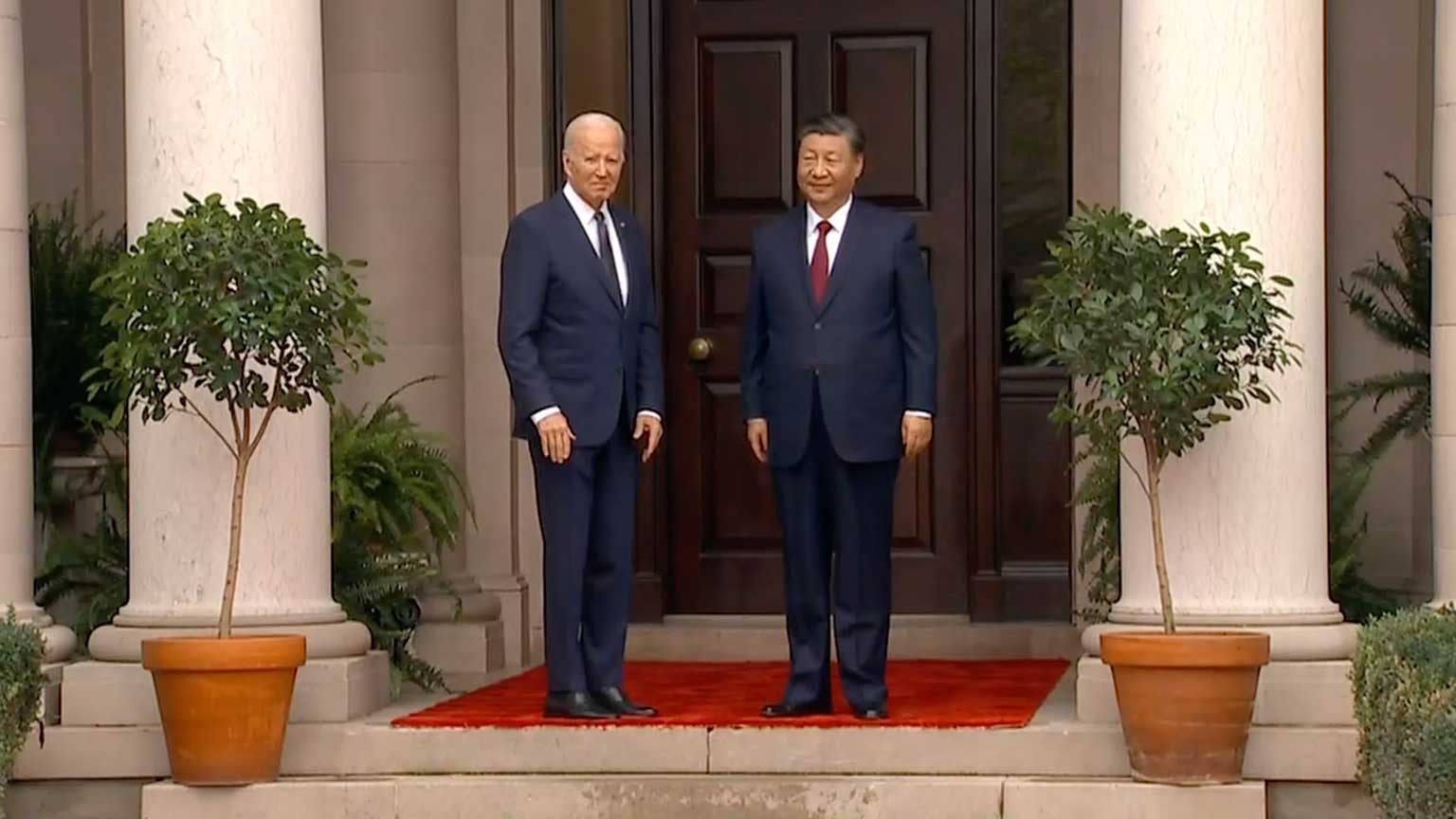Biden welcomed Xi at an estate near San Francisco, on the sidelines of a meeting of the Asia-Pacific Economic Cooperation forum.
Both leaders had expressed an interest in getting their countries back on good terms in recent days.
"We have to ensure that competition does not veer into conflict," Biden said at the start of the meeting. "We also have to manage it responsibly."
"As the most important bilateral relationship in the world, China and the US should develop in a way that benefits our two peoples and fulfills our responsibility for human progress," Xi said.
During the meeting, Xi reportedly told Biden, "Planet Earth is big enough for both countries to succeed."
China's foreign ministry reports the two made progress on several fronts and agreed to resume high-level communication between their militaries.
They also reportedly agreed to establish a dialogue on artificial intelligence and set up a working group aimed at cracking down on the illegal drug trade.
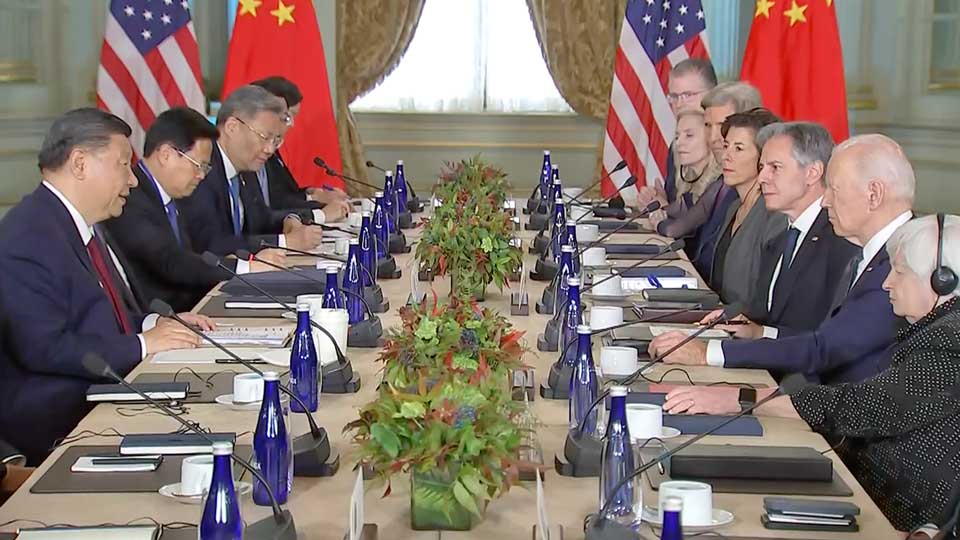
Xi: 'Unification of Taiwan is unstoppable.'
Taiwan was the main focus of the meeting. Xi told Biden "to stop arming Taiwan" and that "China will realize unification, and this is unstoppable."
However, a senior US official said Xi denied that China is planning military action in 2027 or 2035, despite hearing US reports to the contrary.
The official told reporters after the meeting that Xi made it clear that Taiwan is the "biggest, most potentially dangerous issue in US-China relations." The official said Xi also laid out the conditions that could lead to the potential use of force.
The official said Biden asked Xi to respect the electoral process in Taiwan, but "President Xi responded, peace is all well and good but at some point, we need to move towards resolution more generally."
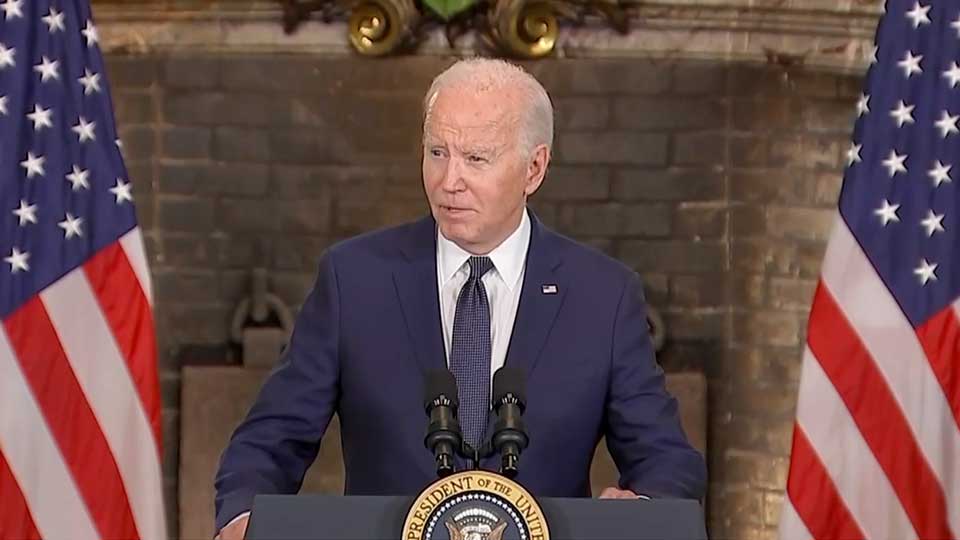
Biden said in a press conference following the meeting that the US is determined to maintain peace and stability in the region. He added the US remains committed to the One-China Policy.
Biden added that though he found the talks with Xi productive, he believes the Chinese President is a dictator. When asked by a reporter whether he would still refer to Xi as a dictator, Biden said: "Look, he is. He's a dictator in the sense that he's a guy who runs a country that is a communist country, that's based on a form of government totally different than ours."
Military communication
For Biden, the reopening of high-level military communication with China is a major milestone. Lines between the two sides had been suspended since August of last year, when then-House Speaker Nancy Pelosi visited Taiwan.
During today's meeting, Biden and Xi agreed to reestablish multiple channels, including those between themselves and their defense ministers.
Chinese media also noted that both sides agreed to resume dialogue between senior military officials.
The two countries have had some close calls in the past year, with their naval vessels and aircraft approaching each other dangerously close in the Pacific on several occasions.
Cooperation
China's Foreign Ministry said the meeting will be the starting point for improved ties. It highlighted new agreements to expand cooperation in a range of areas. These include plans to increase the number of flights between the countries and efforts to work together in trade, AI and global warming. The two sides also agreed to combat the flow of fentanyl, a deadly drug at the heart of the US opioid epidemic. The US claims China manufactures and distributes chemicals used to make the drug.
Confrontation
Chinese media reported details of the talks shortly after the meeting ended. This suggests Beijing wants to quickly showcase the talks as a success at home.
But the two sides remain at odds in several areas. Xi called on the US to take action on matters affecting the Chinese economy, such as export controls on semiconductors.
Nemoto Kotaro, NHK World's Washington correspondent, says Taiwan remains the thorniest issue in the two countries' relationship.
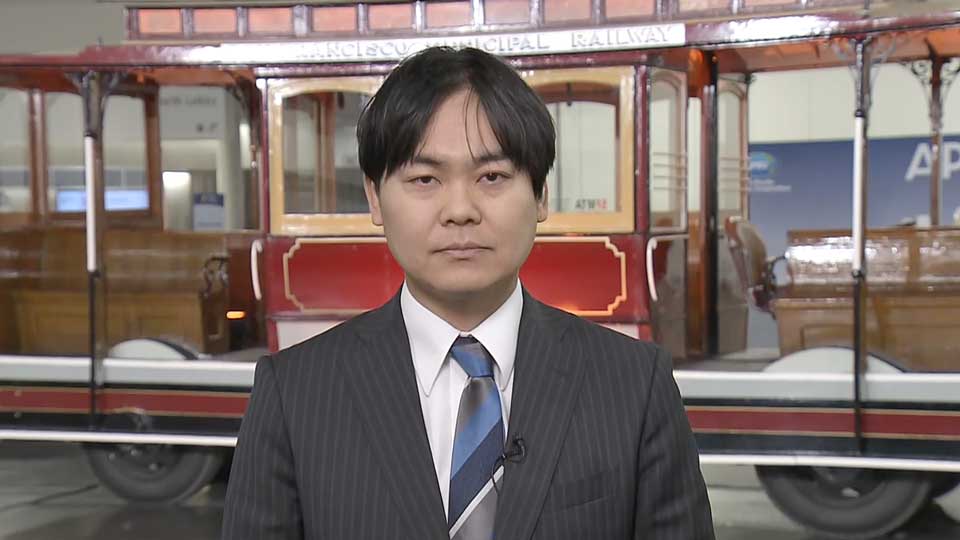
Nemoto says tensions between the two countries will remain because the US is still competing with China. They'll be managing the relationship so that it hopefully doesn't escalate into a full-blown conflict. Biden said getting the two militaries to communicate again was a major step forward. The two countries are at odds over several key issues, including Taiwan.
Nemoto says it is also notable that Biden urged Xi not to intervene in Taiwan's presidential election, with the US election not far off itself. The Democrats and Republicans are already in campaign mode and both parties are taking a tough stance on China.
Meanwhile, NHK World's Shanghai correspondent Michishita Wataru says China will be keeping a close eye on how US actions differ from Biden's words.
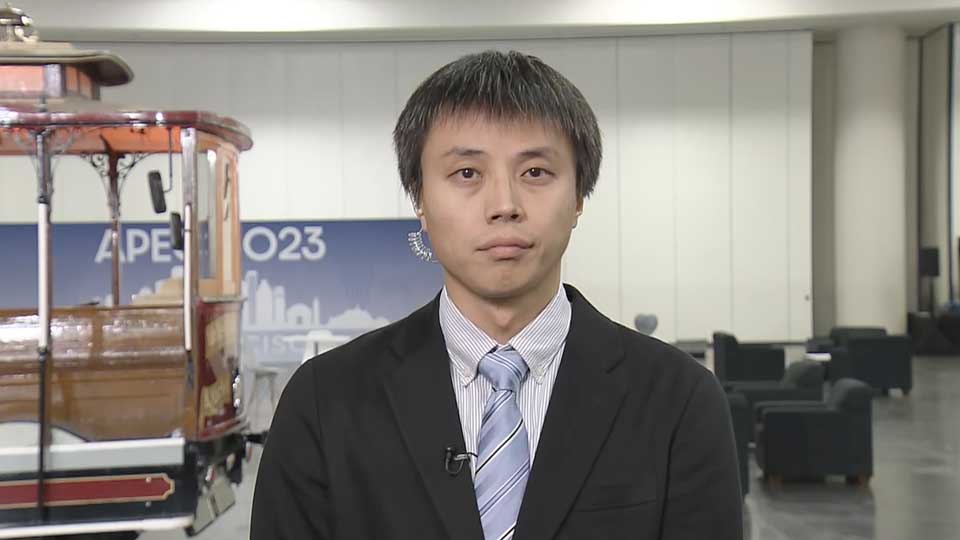
Michishita says the fundamental structure of confrontation is unlikely to change because many differences remain between Beijing and Washington. And Taiwan will remain the biggest flashpoint, as Xi showed he is determined to not budge an inch on the issue.
He says Beijing understands that Washington will not lessen its involvement in Taiwan, even though Biden says the US is committed to the One-China policy.
But if US actions are inconsistent with Biden's words at this summit, Michishita says China may react sharply and take a hard line at the bargaining table on a number of crucial issues.
